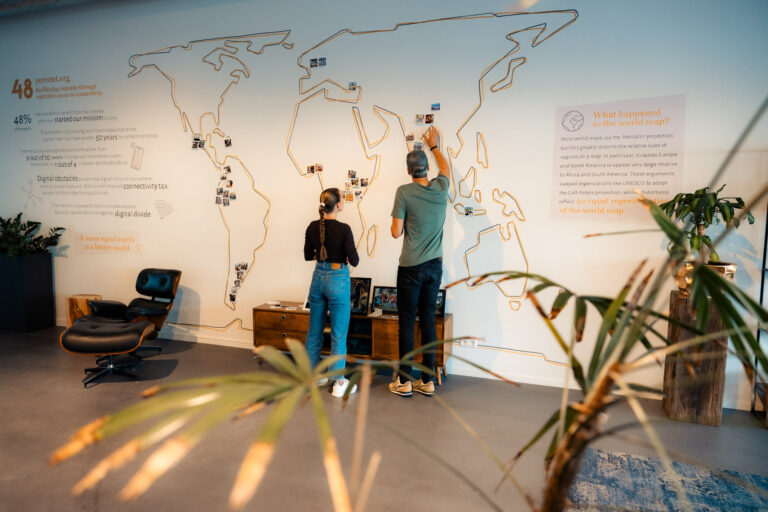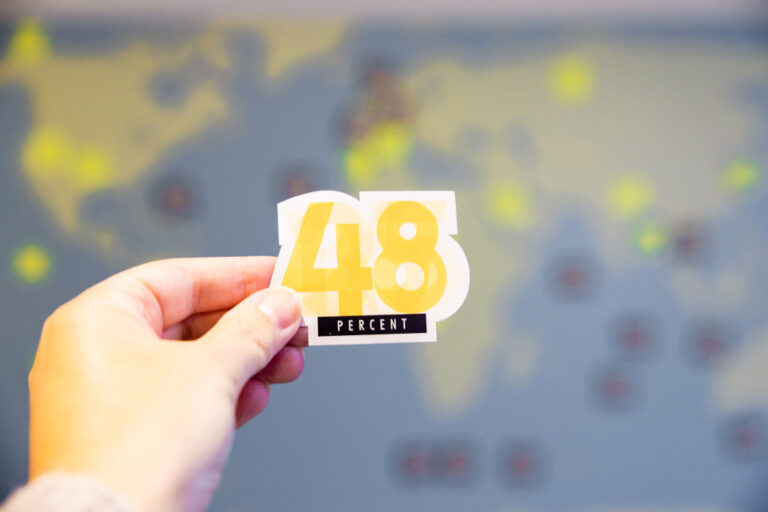What our foundation 48percent.org accomplished in 2022
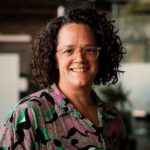
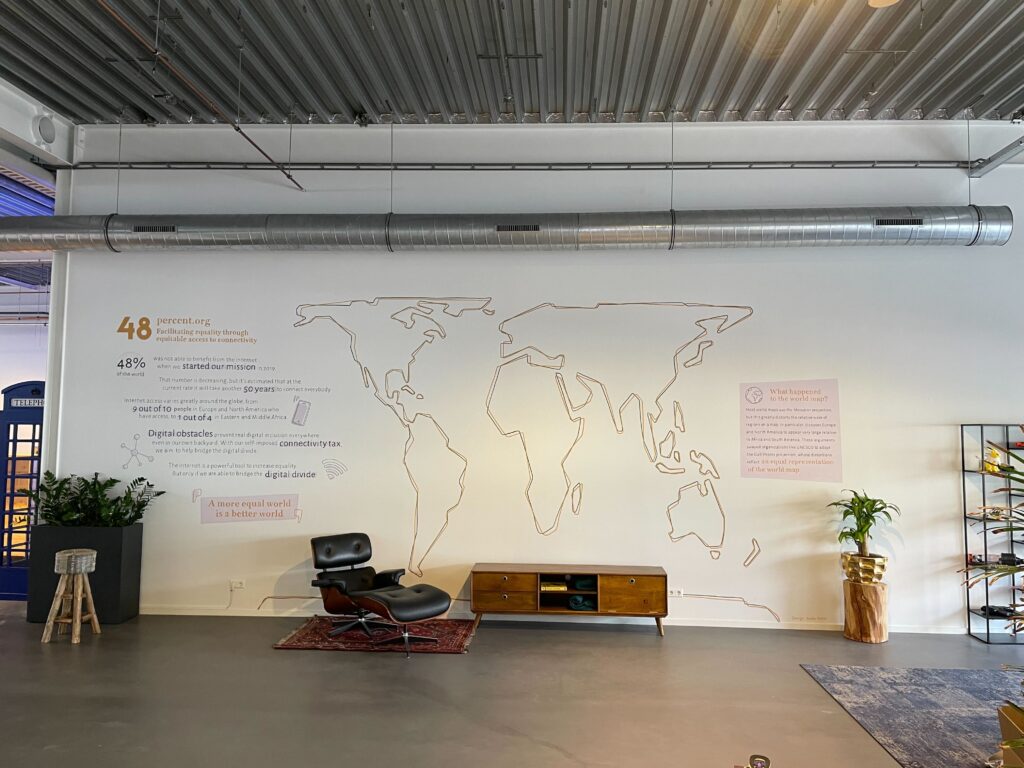
At Voys, we work towards equal communication for all, which is why we have a 1% connectivity tax which is donated to the foundation we founded, 48percent.org. This blogpost was originally posted on the 48percent.org website. Any references to we means the 48percent.org team.
Here is an overview of what was accomplished by all of our partners in 2022. A look at the important steps we made towards equitable access to connectivity encourages us to continue our mission. We are very happy that the work for 48percent.org becomes more impactful every year. For a big part that is because of our wonderful partners we get to work with every day. Keep reading to find out exactly what we did in 2022.
Our year in numbers
In 2022 we estimate that a total of 11.167 people benefited from our projects. To accomplish this we contributed 136.052 Euro to a total of 13 projects. Since the start of 48percent.org this brings our cumulative results to:
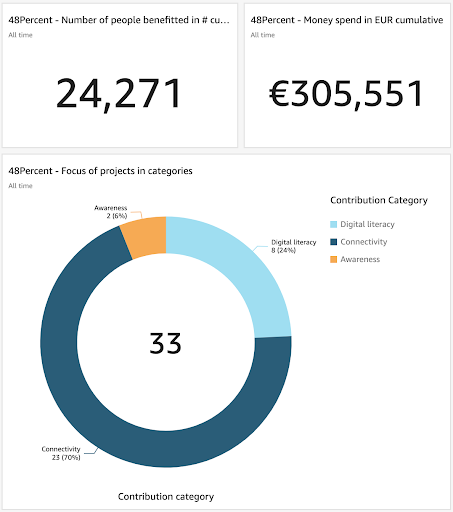
Projects in 2022
In 2022 we mainly focused on strengthening long term partnerships, which is a cornerstone of our foundational work. We stay in close contact with our partners to make sure we know what is happening and how we can continue to support them and their missions. During the year the projects we supported and the work our partners did contributed towards important progress in several key areas for bridging the digital divide.
Improving existing infrastructure
Creating and maintaining the necessary infrastructure to secure internet access for the end user, sometimes referred to as last mile connectivity, is a very important chain in the entire connectivity process. It’s often costly and needs ongoing maintenance and upgrading to stay operational. It is not surprising therefore that projects focused on addressing this issue, often appear in our radar. Our long term partner, Blinknow requested funding to improve internet connectivity and Wi-Fi coverage at the main campus and surrounding facilities, including the newly upgraded computer lab. In addition to improved coverage, the adjustments also reduced downtime caused by power losses.
We also supported Bosco Uganda to refurbish 4 ICT centers (established in 2012) in partnership with community groups in Agago district. Within these ICT centers, the laptops and power system also got an upgrade. In addition to these upgrades, a strategic tower of 21 meters was erected to provide point-to-point wireless internet connectivity via connection to the BOSCO Uganda community network. This will provide connectivity to four other community centers that are currently isolated. We also supported Bosco to extend the existing network in Acholi subregion, two secondary schools, one primary school-community center hybrid, one community center and one radio tower.

The Internet Society (ISOC), one of our new partners, spearheaded a project of 1700 Sherpa people living in 2 villages in Nepal near Mount Everest which they brought to our attention. The villages had no internet access because traditional operators were unable to reach them. ISOC and the ISOC foundation worked with local community members to deploy a community network. This network went online in 2022 but they needed an infrastructure upgrade to improve internet speeds and connect more people.
Community Networks
As mentioned above in the project in Nepal, community networks are a very effective solution to realize connectivity in areas that are not serviced by traditional operators. They provide connectivity and empower local communities. Building these networks is no easy feat, especially when you take government regulations and large rural landscapes into account. That is something our partner Altermundi knows very well. This does not hold them back in working on their mission to ensure access to affordable connectivity in all parts of Argentina. In the project we supported, they not only increased capacity in local communities by installing their own networks using the LibreRouters. They also provided the technical and organizational tools for 16 community networks and supported them in applying for government funding for connectivity through the Roberto Arias Program.

Working towards local capacity building is important to create and sustain local community networks. This ensures that all communities are digitally included. Another way in which we supported this was through the bootcamp in Colombia organized by our partners Redes. This bootcamp, open to people all over Latin America, was the last step of a longer training program supported by the ITU. The entire program aimed to teach people about network installation and community telecommunications and broadcasting.
Through capacity building, maintaining and installing community networks will be possible by the local people. The bootcamp specifically aimed to give the participants practical exercises to test their theoretical knowledge in real life scenarios. The ultimate goal was to create a network of community technicians in the region who can accompany each other.
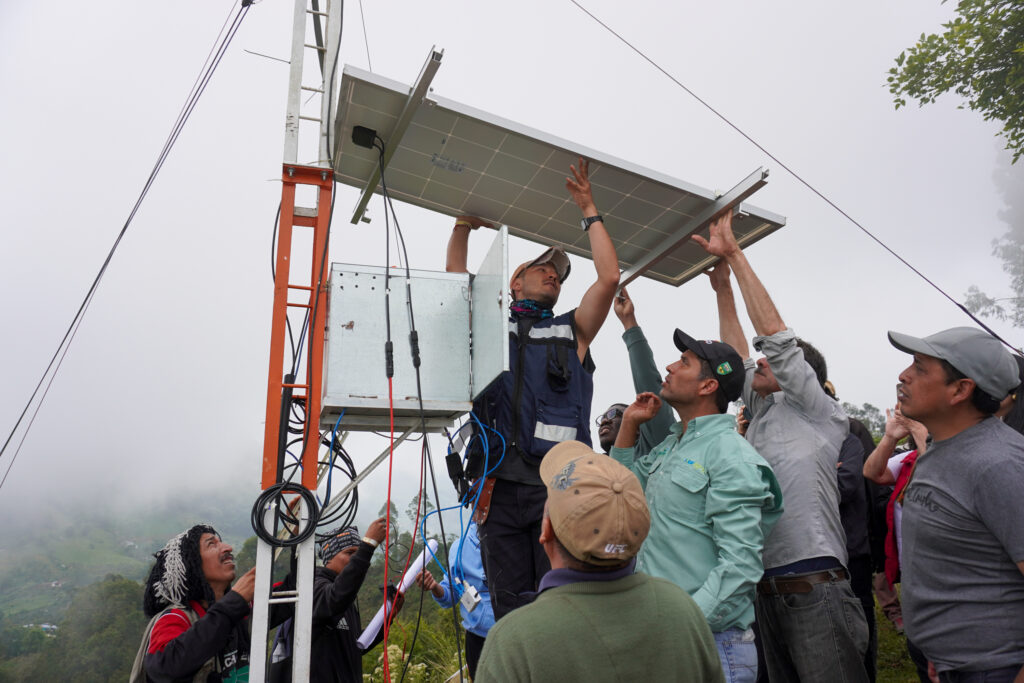
Education and empowerment
Being introduced to digital tools early on in your education greatly helps in developing the necessary digital literacy skills to really benefit from access to connectivity. That is why we often support projects related to education and digital literacy. This was also part of our support to Blinknow which we mentioned earlier.
Access to (digital)education has a big gender component, which is why we supported Servelots project to facilitate women and girls to access the internet. Not only can it strengthen their confidence, but it can also provide them with more equal opportunities and roles within patriarchal societies. By supporting our partner Servelots we helped connect young girls to the internet through ASPI devices. These small devices can be used collectively in addition to serving as an internet node. A good number of the users, young women, are first time users of computers, a mouse or a browser. During team visits, the girls are supported and encouraged to use the computers and the provided online learning materials. Especially during COVID lockdowns, this helped the girls continue their education by watching online videos.
We supported our partner the unconnected in a project to help educators of impoverished learners in Yogyakarta to understand and create awareness around the impact for digital tools for learning. Our contribution enabled students and their teachers to attend training programs in how to connect and use devices and software. We also provided the necessary hardware and bandwidth to enable this.
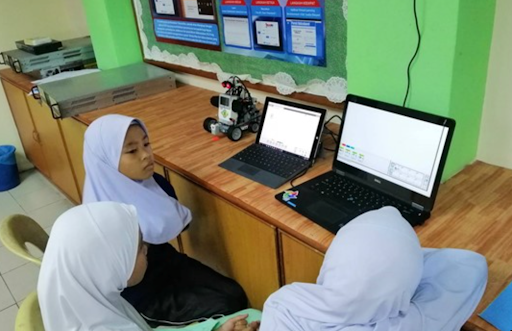
This year we also became a member of the Internet Society. Their mission closely aligns with ours, so joining them as a member organization was a logical next step. They offer a globally accessible empowerment program to assure that everybody has access to the necessary skills to bridge the digital divide. To support them in this mission we partnered with them in this program. Part of this endeavor was a training course in Kenya that allowed young people to learn how to facilitate network infrastructure and network security for their local community. Throughout the program, the students that participated acquired knowledge about topics like Internet installation and configuration, maintenance work, marketing and communications, and how to trace and correct faults in networks.
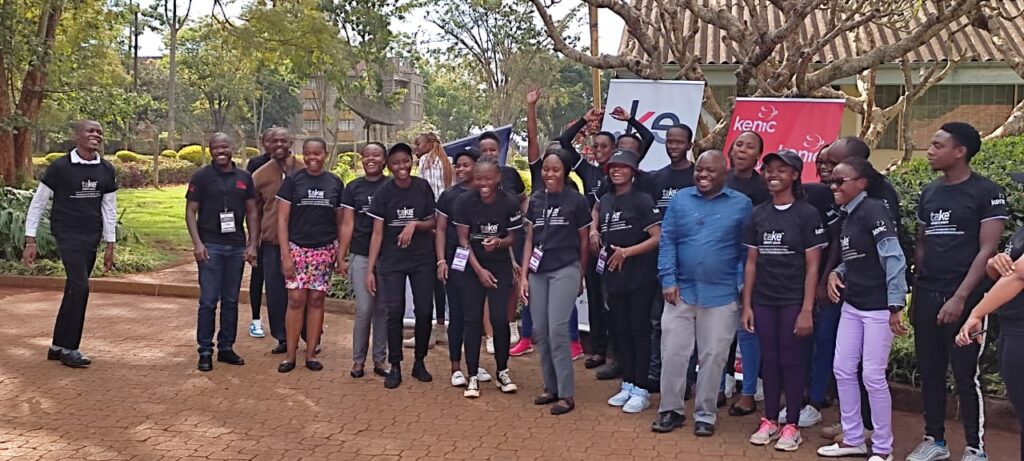
Libraries also serve an important role in increasing access to education, information, and digital literacy. We supported Fantsuam in their efforts to digitize the Kafanchan public library to ensure more people accessing necessary tools for education and digital literacy. The Kafanchan library is one of the oldest libraries in Soutsupported Fantsuamhern Kaduna, Nigeria. The Covid-19 pandemic however, showed that the library had lost a lot of its relevance in providing a conducive study environment and access to new academic publications. By upgrading it to a digital library, it could provide more people with the opportunity to access the library and the tools it offers.
When the war in Ukraine started, it caused massive amounts of people to flee the country. Once crossing the border, they often had either no mobile phone, no battery left, or no credit to make calls. Together with the unconnected, we supported emergency funding to provide refugees with a first level of connectivity needed to get in touch with loved ones and get access to information.
Supporting innovation
New innovative solutions to bridge the digital divide are something we are always on the lookout for. When we have the opportunity and ability to support and contribute we rarely hesitate to do so.
Together with our partner Project Isizwe we embarked on a long term project to pilot a new approach to creating a self-sustaining connectivity network in Mpophomeni, South Africa. In doing such a project, we look at data to closely monitor the progress of the pilot. In the end, the success of a project is determined by the people involved. One of the people instrumental in the Mpophomeni project is Lihle. Her story is an inspiring example of what access to the internet can do. For her, it was learning how to start a business and finding information on various types of foods, which inspired her to share her knowledge to create healthier and better lives for the people in her community in the future.
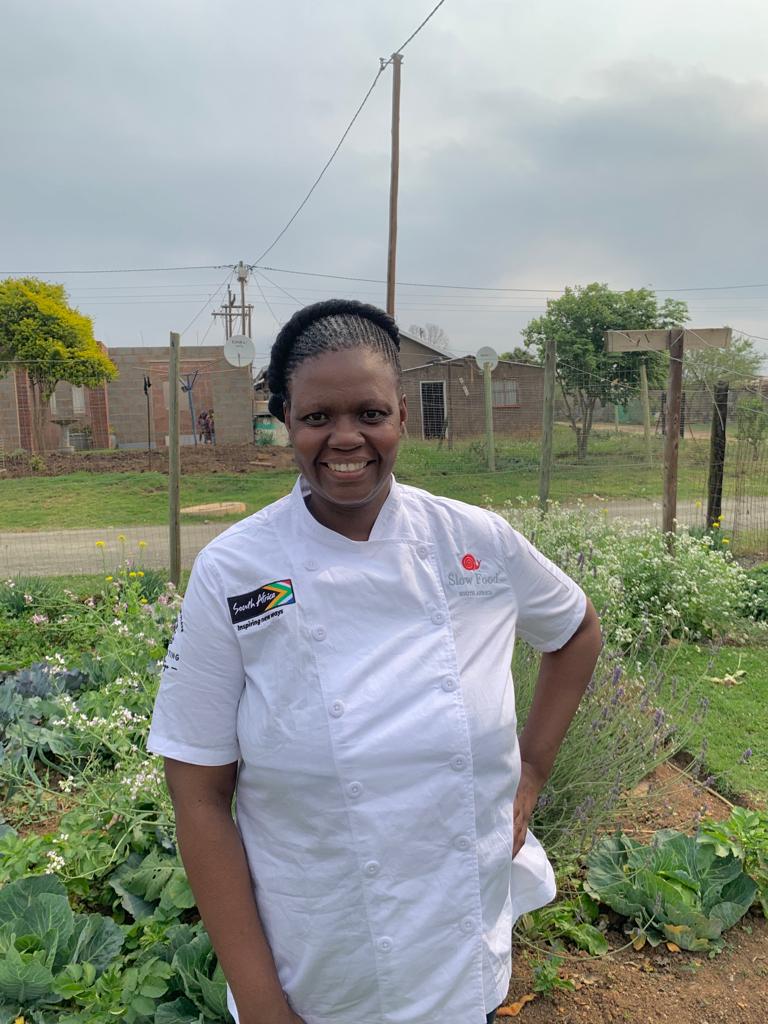
In addition to financial support, we also like to offer technical support where we can. We partnered with Greatwaves and HumanityLink to work on a solution for unreliable access to connectivity for humanitarian staff working in displaced settings. Lack of reliable connectivity causes issues for both refugees and humanitarian staff working in those areas. Humanitarian staff in these settings are often on the go, working from their vehicles. These are their offices and means of transport to reach their beneficiaries. This scenario got us thinking – What if we could help develop a solution that is cheap, durable, easy to install, and could help both refugees and humanitarian workers on the go to connect to the internet? By combining our joint technical expertise, we created a prototype for a mobile wifi-hotspot and we are currently looking for a place to test it.
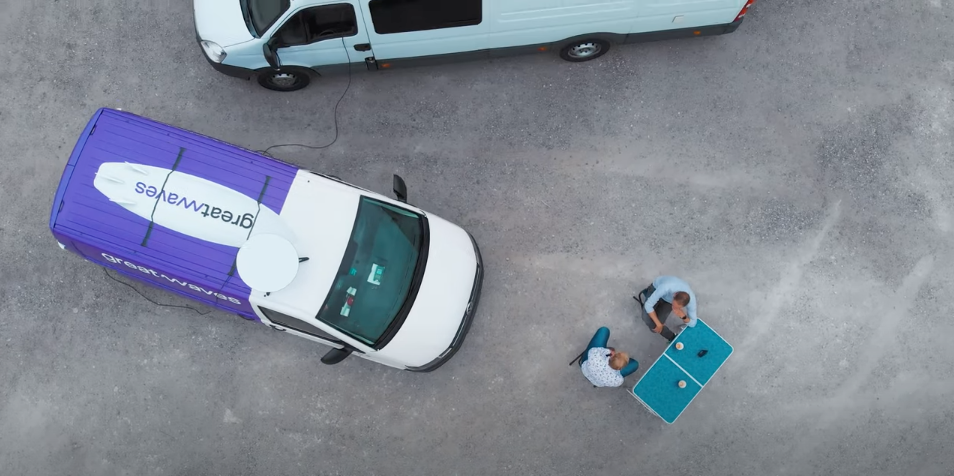
While working with all our partners across the world, it is important not to lose sight of our own backyard. Because also in the Netherlands, having access to a stable, safe, and affordable internet connection is not a given. To work on this continued our partnership with De Alliantie Digitaal Samenleven, an initiative that promotes digital inclusion in the Netherlands.
What is next?
We are very proud of what was accomplished by all our partners in 2022. Each project contributed towards bridging the digital divide and facilitating more equitable access to connectivity.
In the coming year, we look forward to continuing projects that started in 2022, continuing partnerships with our existing partners, and finding new organizations we can partner with on our mission to bridge the digital divide.
If you are interested in working with us in 2023, please contact us on our website. We also encourage you to follow us on Twitter, LinkedIn, or Facebook.
